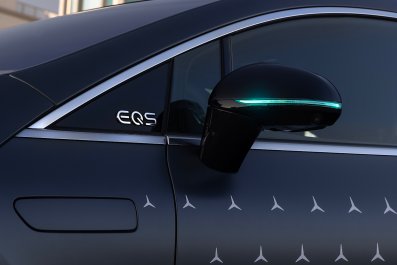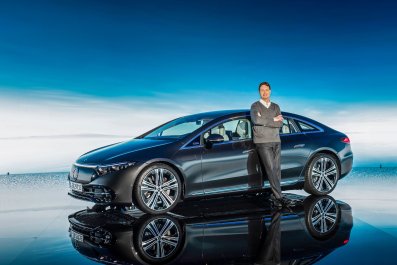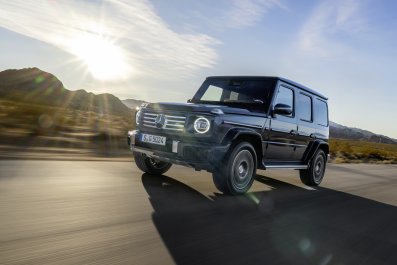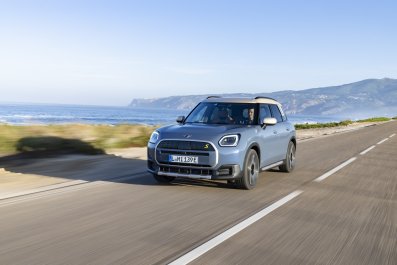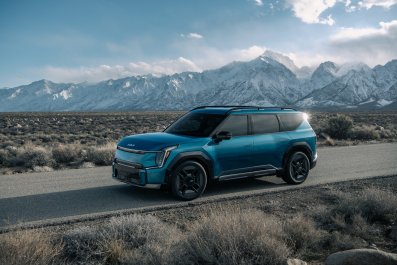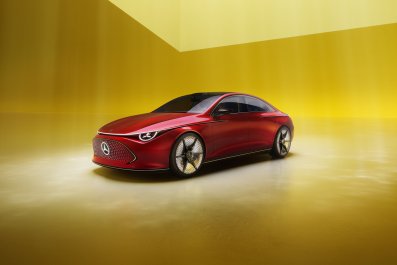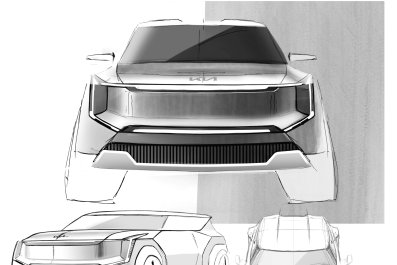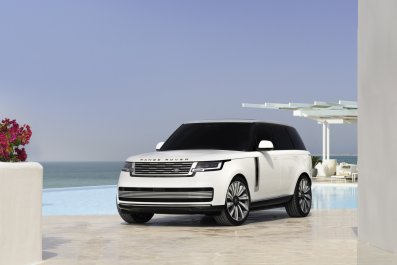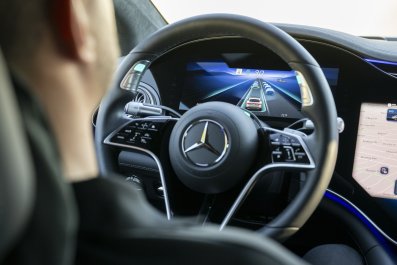2024 Executive Disruptor of the Year
Jim Rowan, CEO and President of Volvo Cars
Volvo Cars CEO Jim Rowan isn't shying away from an auto industry that is in the midst of great change. In fact, he's embracing the disruption. But even he will admit, he's only halfway to where he wants to be on two key fronts: electrification and customer engagement.
"The industry is in transition. And, of course, so is technology ... We're halfway through, in our case, the journey toward full electrification, where most of that technology will be harnessed in meaningful ways. And we're probably about halfway through the full customer engagement journey as well," Rowan told Newsweek.
As CEO, he has set about revolutionizing the Volvo brand, but he stresses that it has had to happen naturally. That does not mean it will be easy.
"We don't try and put in sustainability or technology for the sake of technology or sustainability," Rowan said. "It's baked in, from the very essence of how that affects the customer, how that benefits the customer, and how that benefits society is all of that comes together very early on at the design stage."

"You've really got to force that. You've got to force to make sure that you get that thinking, that you get that collaboration, that you get that cohesiveness right at the very start of the project," he said.
Those decisions are costing the company money, Rowan told Newsweek last year. "As for the material choices that we're making ... recycled aluminum, recycled steel, recycled plastics, often they're costing us more money. So, it's not cost saving, but we're doing it for the right reasons."
To offset the costs of using those greener materials, Volvo has found efficiencies elsewhere. The company is using shared vehicle platforms and is engineering vehicles to be simpler but without moving away from the heralded high-quality materials and good aesthetic choices the automaker has become known for. Part of that sustainability plan is building vehicles where they will be sold, rather than at one location and then shipping them around the globe. That practice led the business to become more nimble than most others during the COVID-19 pandemic.
"Luckily enough for us we had started a process which was called 'build where you sell and source where you build' about four or five years ago. And, that really helped us during the COVID situation because we already had established manufacturing supply chains," said Rowan, who has a master's degree in business with a focus in supply chain management and logistics from Northumbria University, northern England.

The company has manufactured vehicles in Asia, Europe and North America. That manufacturing was built around the supply chain. "When the COVID situation came in, it allowed us to be a little bit more nimble than some of our competitors," he said.
Rowan has charged employees with working to digitize the company's supply chain "as quickly as possible," which will lead to improved visibility into any potential issues for the company. "Try and make sure that you have more than one source for the asset, especially for the key components and the difficult-to-get components," he said.
Despite the hardships of the pandemic, in 2021, Volvo reported all-time high revenue and profitability. Volvo's revenue was up 17 percent in 2022. Last year, the Swedish automaker experienced the highest full-year retail sales, revenues and operating profit in its 97-year history.
The company has also hit new highs in battery-electric vehicle sales, despite only having two BEVs on the market, the XC40 Recharge and C40 Recharge. Before the introduction of its new EX30 and EX90 battery-electric SUVs to the market, Volvo sold 113,419 BEVs in 2023, a 70 percent increase over the previous year's sales. The result was a 34 percent increase in global electric vehicle market share.
During Rowan's two-year tenure at Volvo, the automotive industry has been subject to great disruption from evolving powertrains to wars to the supply chain crisis. "And somehow we've managed to pull all of that energy of that passion, of that spirit, together to create some fantastic new products and actually launch those into the market with great acclaim," he said. The company owes those wins to its 45,000 employees, who work every day to make Volvo a success, he said.
How We Did It
To determine the candidates for this year's World's Greatest Auto Disruptors, Newsweek's Autos team, led by Senior Autos Editor Eileen Falkenberg-Hull, compiled a list considering every major automaker in each of the award categories. Brands, teams and individuals were nominated based on their cumulative merits for the past year, after combing through each candidate's accomplishments in the areas of future product planning, business strategy, technology, marketing, engineering, sustainability, manufacturing and research and development. To be considered, candidates had to be employing executive decision-making, corporate strategy, product development and publicity in a way that is driving fundamental, transformative change in the automotive market, with measurable real-world results—or have clear and demonstrable potential to do so. The Legacy award honors an individual who has achieved these results over decades in the industry. The list of nominees was narrowed by Autos editors, including Jake Lingeman. Winners were chosen after a consensus was reached amongst the Autos team and Newsweek top editors.
Correction 3/27/2024 8:39 am ET: Corrected the number of years that Rowan has been at Volvo to three (from four).
Correction 3/27/2024 10:08 am ET: Corrected the number of years that Rowan has been at Volvo to two.



